
Alphabetical Menu
Chronological Menu
|
Drive My Car 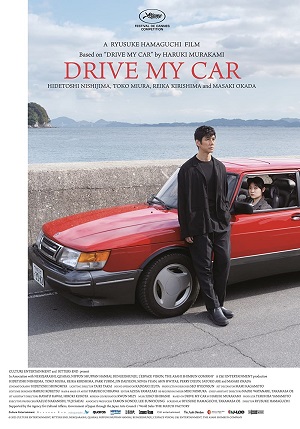 Yusuke Kafuku (Hidetoshi Nishijima), a theater actor and director, catches his wife, Oto (Reika Kirishima), having sex with a younger man. Soon after, she dies, and he learns that he's losing his eyesight in one eye which impairs his vision. He casts a young actor, Takatsuki (Masaki Okada), in a play Uncle Vanya that he's directing. Takatsuki happens to be the same young man whom he caught Oto cheating with. When the theater company learns of his poor eyesight, they require Yusuke to have a chauffeur, Misaki (Toko Miura), drive him to and from work. †The screenplay by writer/director RyŻsuke Hamaguchi and co-writer Takamasa Oe takes its time to develop its narrative and the themes about memory, emotional pain and regret. Yusuke doesn't seem like an interesting character at first, but that's only because he's not very introspective and candid initially. His chauffeur, Misaki, awakens something in him as though he were an iceberg being thawed out gradually. The more time they spend together, the more she gets to know him and the more the audience gets to know him concurrently. Eventually, you also get to know Misaki as she opens up to him as well. In a way, it's inevitable that two people in a car would eventually connect, so that part of the film isn't surprising. What's surprising is how deeply human the relationship between the two of them feels without them actually having a romance with one another. She becomes like a therapist, a friend and a mother to him all at once despite the fact that she's younger than him. She seems more emotionally mature than him, ironically, but, without revealing any spoilers, she has her own traumatic events from her past to deal with. It's fascinating and engrossing to observe the evolving dynamics between them, and what happens when Tusuke confronts Takatsuku, his deceased wife's lover. Hamaguchi avoids contrivance or any big Hollywood moments of drama. There are no car chases or gun fights; just human beings interacting. Just like with Happy Hour and Wheel of Fortune and Fantasy Hamaguchi proves that he grasps human nature and has a natural ear for the way that people talk. There's no stilted dialogue or overexplaining. Even the exposition feels organic. There are also a few brief moments of comic relief, but for the most part, he's unafraid to delve into the darker side of humanity and to explore tough human emotions. In a way, there's even another character who's there for the ride, but not on-screen: the audience. Hamaguchi makes you feel as though you're a voyeur observing two human being bonding and, eventually, sharing intimate thoughts and feelings with each other. As Yusuku and Misaki gradually pull the curtain displaying their humanity and unmasking their true selves with emotional nakedness and introspection, the audience is compelled to do the same and to project. Drive My Car is essentially an emotionally mature film that rewards emotionally mature, introspective audience members. †Drive My Car will also reward patient audiences. Hamaguchi clearly trusts the audience's patience as he moves the film at a slow, leisurely pace with moments of quiet every now and then. Some of the driving scenes, and there's plenty of them, can be seen as a travelogue of sorts, so even if you might think you'll be bored by them, you'll have scenery to take in and enjoy. The running time of 2 hour and 59 minutes sounds excessive, but once you're used to the film's refreshingly unhurried pace and immerse yourself in the lives of its characters, you won't feel the weight of the running time that much. The performances are all natural without over-acting or under-acting which adds to the film's sense of realism and emotional depth that's also present in the screenplay. Drive My Car is a meditative, profound and engrossing journey.† 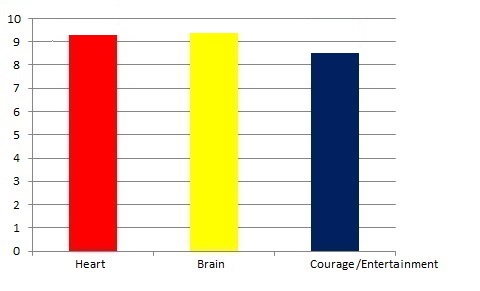 Encanto 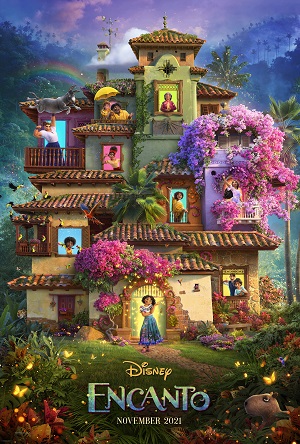 The Madrigal family has lived with superpowers for many generations thanks to a magical candle that's still been burning brightly. Mirabel (voice of Stephanie Beatriz) is the only member of the family without super powers, though. Her sister, Isabella (voice Diane Guerrero), can make flowers blossom wherever she goes while her other sister, Luisa (voice of Jessica Darrow), has super strength that allows her to lift many donkeys with her bare hands. Mirabel believes that the magical candle's powers are waning, but Alma (voice of Maria Cecilia Botero), her grandmother, refuses to believe her and pretends that the magic is still alive. So, she goes on a quest all on her own to try to save her family's precious superpowers. The screenplay by Charise Castro Smith and Jared Bush has a story that's more engaging when it explores the dynamics between Mirabel and her family members than when it focuses on her quest to save their magical superpowers. At its core, Encanto is about a dysfunctional family with a narcissist, controlling matriarch, Alma. She's not quite as toxic as Gothel, the mother who held her daughter, Rapunzel, captive in Tangled, but she comes close. Isabella is the "golden child" of the family who thinks she's perfect while Mirabel is the black sheep that everyone looks down on. Anyone who's ever felt like an outsider would be able to relate to her and feel empowered by how she finds her innate strength to believe in herself in spite of everyone else not believing her. She's not the only family member who's the black sheep; as it turns out, there's someone else who's had a falling out with the family which provides an interesting backstory. Even the backstory of Alma is compelling and poignant. Fortunately, the screenwriters do a decent job of introducing the characters without revealing all of their backstories right away. Part of the surprise in Encanto is in the discovery of the characters' past which humanizes them and allows you to understand them better. Also, Alma could've been written as a villain, but she's not; she's a flawed human with emotional pains of her own. Encanto doesn't dwell on those darker elements nor does it have to because it's a family film. The filmmakers keep the film feeling as uplifting as possible with some comic relief, i.e. a Madrigal family member who can shapeshift, and joyous musical numbers, of which there are many, that are very well-integrated into the story. The action adventure elements aren't among the film's strengths nor is the third act that feels rushed and contrived. Encanto has bright, breathtaking and colorful animation that provides plenty of eye candy and adds to the joyous experience. The musical numbers are lively and amusing at times. None of the songs are particularly memorable, but they're never dull. It's also worth mentioning the CGI animation that looks photorealistic occasionally, especially when it comes to water. The animation team has done an impeccable job of making the Madrigal's faces look full of personality, expression and even warmth when needed. At a running time of 1 hour and 39 minutes, Encanto is not as exhilarating, sweeping or funny as Tangled nor as poignant Coco, but it's nonetheless pleasantly diverting, big-hearted and uplifting. The 17-minute short, Far From the Tree, directed by Dave Thomas, precedes it and prepares you for the equally sweet and tender Encanto. 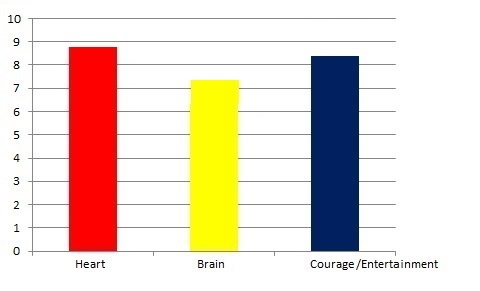 For the Love of Money 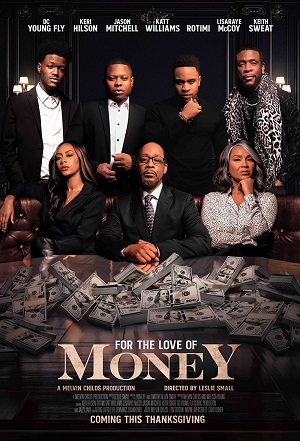
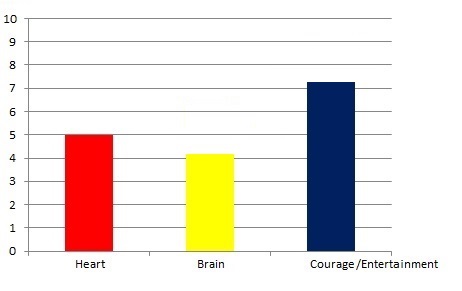 A Holiday Chance 
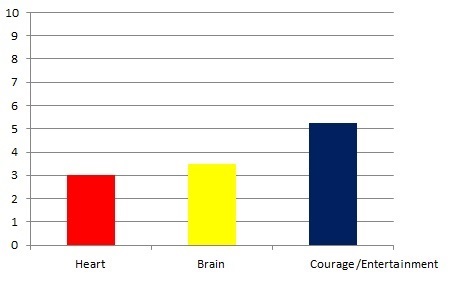 House of Gucci 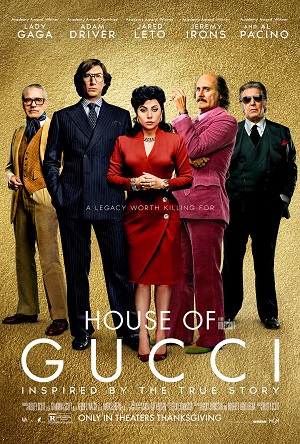 Patrizia Reggiani (Lady Gaga) meets and falls in love with the wealthy Maurizio Gucci (Adam Driver) despite the disapproval of his father, Rodolfo (Jeremy Irons). She persuades Maurizio to join the family business and ends up causing him to rival with his cousin, Paulo (Jared Leto), son of Aldo (Al Pacino), and eventually leading the family down a dark path of crime. While she travels and lives an extravagant life, she sees a psychic, Pina Auriemma (Salma Hayek). House of Gucci is a hot mess that doesn't work as a biopic nor as a crime drama. Based on the book by Sara Gay Forden, the unfocused screenplay by Becky Johnston and Roberto Bentivegna favors style over substance while failing to get inside the heart, mind and soul of its characters. The hope for some kind of substance and intrigue is there, but everyone remains at a cold distance from the audience, even Patrizia and Maurizio. Why not let the audience get to know them more during their private moments and to get more of a glimpse of their innate struggles? Just because the Guccis might've been cold, shallow people doesn't mean that they're not human beings with thoughts and feelings of their own. When it comes to the tone, that's where the film becomes the most chaotic and lazy. At times, it's campy, but in a very awkward way. There's a sex scene with Patrizia and Maurizio on a desk which is filmed in a way that's unintentionally funny, almost like the pool sex scene in Showgirls. If House of Gucci were a spoof, i.e. Mafia!, perhaps that scene would've been fitting. Bad laughs don't belong in anything that's not a spoof or a campy satire. The screenwriters also do a terrible job of handling the darker elements of the film like one of the character's deaths which happens so suddenly and with no explanation of how he died until later in the film during the end credits. That's just one of the few examples of the screenplay's clunky and poor exposition. In any great biopic or any non-comedy or action film for that matter, the characters start as strangers to the audience and by the time the end credits roll, they're no longer strangers. Unfortunately, by the end of House of Gucci everyone still remains a stranger to the audience. It's no help that the ending, when the Gucci family gets their inevitable comeuppance, feels rushed and contrived, i.e during the unusually short court scenes. Why hurry though scenes that the audience was most likely anticipating? That's like eating a light, unfulfilling main course while you're hoping for a satisfying dessert, but you end up being served a tiny, underwhelming dessert instead. Speaking of main courses, House of Gucci has such a long running time, nearly 3 hours, that it's surprising that it's much less than the sum of its parts. A lot happens, yet so little actually sticks. Perhaps that has something to do with the shallow screenplay, but it might also be because Lady Gaga lacks the acting chops to handle emotionally complex roles or to rise above a weak screenplay. Adam Driver has much more skill as does Al Pacino and Jeremy Iron, but he's undermined by the lackluster screenplay. Jared Leto looks nearly unrecognizable as Paulo. Although he physically transforms into his role, his actual performance leaves much to be desired because his Italian accent sounds so awful like nails on a chalkboard; again, it steers the film unintentionally toward being a spoof. The editing feels choppy at times with awkward transitions between scenes. The film's main strengths, though, are the lively soundtrack and, just as expected, the stylish fashion design and make-up. None of those feats are nearly enough to invigorate the film as a whole. At a running time of 2 hours and 39 minutes, House of Gucci is an overlong, vapid and uneven biopic that bites off much more than it could chew. 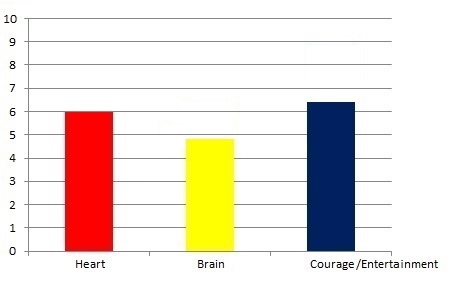 The Humans 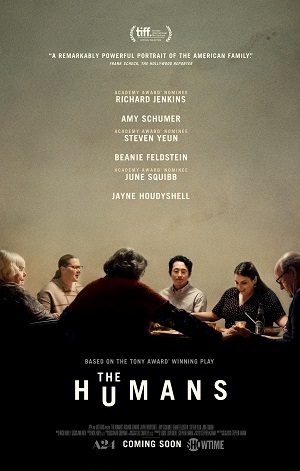 Brigid (Beanie Feldstein) and her boyfriend, Richard (Steven Yeun), host a Thanksgiving dinner at their new apartment in New York City's Chinatown. Their guests include Brigid's mother, Deirdre (Jayne Houdyshell), father, Erik (Richard Jenkins), older sister, Aimee (Amy Schumer) and grandmother, Momo (June Squibb). Dark secrets from each of them get revealed throughout the night. †The Humans, based on the play by writer/director Stephen Karam, is the kind of film that's hard to classify in a one particular genre. On the surface, it looks like it could be a psychological horror drama in the vein of Rosemary's Baby and The Shining. Beneath the surface, it's the story of a dysfunctional family whose members are suffering in their own way. They might seem like a somewhat functional family initially, but the screenplay by writer/director Stephen Karam gradually shatters that as the night progresses. The film gets darker and deeper as Brigid and her family members reveal their intimate thoughts and feelings. Karam does a great job of fucking with the mind of the audience by playing around with their imagination. Something supernatural may or may not be occurring. Is there an evil presence lurking inside or outside of the apartment? The answer to that question remains open to interpretation. There's no clear villain, but the more you get to know Richard, the more he seems very toxic. His problem with alcoholism is just the tip of the iceberg. A sense of unease and foreboding horror can be felt from start to finish which reflects the family's escalating tensions. Fortunately, the dialogue sounds natural without any stiltedness, and the characters feel like complex human beings with inner lives, emotional pain and fragility. The apartment becomes like a character in itself with its deteriorating walls and strange, unexplained sounds. There are many shots throughout the film that are just as creepy as some of the scenes in Paranormal Activity, especially when the lights go out. In one particular nighttime scene, the reflection in the window of two candlelights looks like eyes. Karam uses sound design, cinematography and lighting to maximum effect when it comes to teasing the audience with horror elements. It makes The Humans an unnerving, intense experience. "Where is this all headed towards?" is a question that will be on your mind eventually, and the answer isn't necessarily what you think will be which makes the film all the more unpredictable. Much of the film lives inside the imagination of the audience, so it all depends on how you're conditioned to think what a horror film is. The third act, which won't be revealed here, is poetic because it can be seen as a metaphor that, yet again, leaves room for interpretation as for what it's a metaphor of. †Writer/director Stephen Karam wisely avoids spoon-feeding the audience or preaching to them. The Humans, much like Mass, asks a lot from the audience, but films that ask for a lot usually end up giving a lot, too, which is the case here. Regardless of how you interpret the metaphors, The Humans leaves you thinking about the meaning of the title and opens up the discussion of what all the creepy atmosphere actually means. As the title implies, the characters on-screen are your species. †The performances by everyone in The Humans also help to make it engrossing. It's refreshing to see Amy Schumer playing against type like Melissa McCarthy did in Can You Ever Forgive Me?. She has the acting chops to handle dramatic roles. The same can be said about Beanie Feldstein. Richard Jenkins and Jayne Houdyshell are well-cast and breathe life into their roles. At times, the talky scenes can seem stagey--after all, it's based on a play--but it's never stuffy, and Karam tries to make it look and feel as cinematic as possible with the cinematography. Karam also avoids veering into maudlin, melodramatic or over-the-top territory. See The Feast if you prefer over-the-top endings rather than nuanced, poignant ones. If you like your holiday movies bold, profound, haunting and refreshingly un-Hollywood, The Humans would be right up your alley. At a running time of 1 hour and 48 minutes, it's spellbinding, provocative and haunting.† 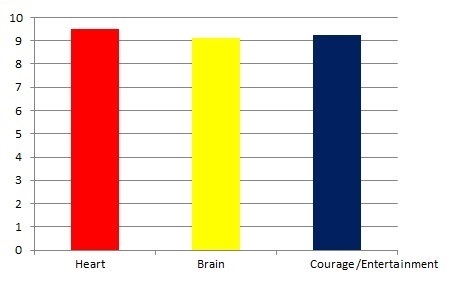 Resident Evil: Welcome to Raccoon City 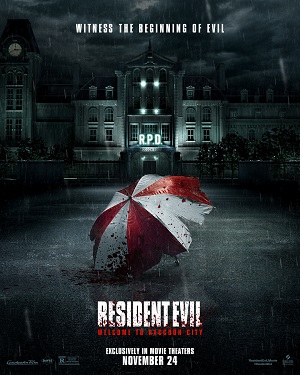 Claire Redfield (Kaya Scodelario) returns to her small Midwestern hometown, Raccoon City, to warn her brother Chris (Robbie Amell) about something nefarious that she thinks is going on there involving the Umbrella Corporation, a large pharmaceutical company that relocated from the town. Police chief Brian Irons (Donal Logue) and officers Jill Valentine (Hannah John-Kamen), Albert Wesker (Tom Hopper) and Leon S. Kennedy (Avan Jogia) investigate what happened to the S.T.A.R.S. Bravo team who were sent to the Spencer Mansion in Raccoon City before disappearing. Meanwhile, the town residents turn into zombies one by one, so the survivors must fight for their lives. Resident Evil: Welcome to Raccoon City begins with a prologue that's scarier than the scenes that follow it. After the prologue, the screenplay by writer/director Johannes Roberts takes its time to introduce the audience to the many characters. They have first and last names, but they're one-dimensional caricatures who are just there to move the plot forward. There's nothing wrong with a B-movie as long as it's fun to watch and doesn't take itself too seriously. Unfortunately, this prequel to Resident Evil eventually runs out of steam and becomes a bland, tedious action thriller that's merely going through the motions. The action scenes are intermittently thrilling and unflinchingly gory, so at least it will please audiences looking for blood and gore. When it comes to story, though, the film falters because it lacks suspense. The villain is one-dimensional, bland and forgettable. There's also not enough comic relief or levity, so the monotony starts leading to boredom around the hour mark. If Resident Evil: Welcome to Raccoon City were at a lean 90 minutes, perhaps it wouldn't been more effective as a zombie thriller. The pacing feels uneven and the first act takes too long to get going with too many characters. Roberts fails to bring any of the characters to life. If they felt remotely human, the audience would be able to care about them and root for them. The only character who's remotely worth rooting for is Leon, but that's only because the underrated Avan Jogia brings plenty of his charisma to that role. The visual effects look decent, but the production design has nothing exceptional; the other Resident Evil films looked slick and stylish, but this particular one lacks a style that's pleasing to the eye. At a running time of 1 hour 47 minutes, which feels more like 2 hours and 30 minutes, Resident Evil: Welcome to Raccoon City is a shallow, unimaginative and tedious B-movie that's not entertaining enough to be a guilty pleasure. Be sure to stay through the end credits for a mid-credits sequence. 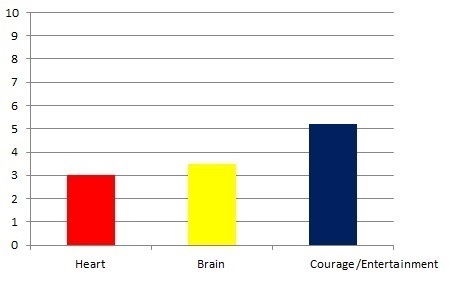 |